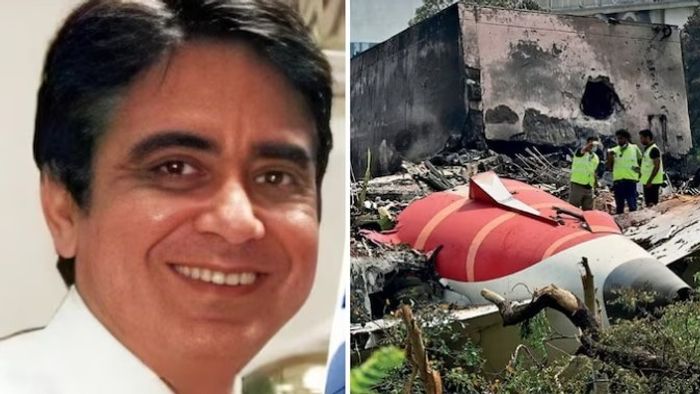Father of Air India pilot seeks Supreme Court-monitored probe into 2023 Ahmedabad crash
The father of the Air India pilot involved in the Ahmedabad crash has requested a Supreme Court-monitored probe. The family demands transparency and clarity on the accident's circumstances

- Oct 16, 2025,
- Updated Oct 16, 2025, 5:10 PM IST
The father of late Captain Sumeet Sabharwal, who was the pilot-in-command of the Air India Boeing 787-8 Dreamliner that crashed in Ahmedabad in June, killing 241 people, has approached the Supreme Court demanding a judicially monitored investigation.
Pushkaraj Sabharwal, 91, together with the Federation of Indian Pilots (FIP), filed a petition urging the court to set up a probe led by a retired Supreme Court judge and supported by independent aviation experts. The plea argued that the current investigation by the Ministry of Civil Aviation and the Directorate General of Civil Aviation (DGCA), including the preliminary report submitted on June 15, is “defective and suffers from serious infirmities and perversities.”
The petition called for all prior DGCA investigations, including the preliminary report dated July 12, to be treated as closed, with all materials, data, and records handed over to the proposed judicial committee.
“Respondents have conducted a perfunctory, biased, and technically deficient investigation… ignoring critical inconsistencies, material evidence, and plausible systemic causes, thereby undermining the credibility of the inquiry,” the petition stated.
It added that attributing the crash to pilot error without corroborative evidence or thorough technical analysis made the investigation “arbitrary, perverse, and violative of Articles 14 and 21 of the Constitution of India.”
The petition highlights technical concerns in the preliminary report, including inadequate analysis of the Ram Air Turbine (RAT) deployment, potential failure of Boeing’s Common Core System (CCS), and simultaneous loss of multiple redundant safety and data systems. These, the plea says, suggest a systemic electrical collapse rather than human error.
“The failure to correlate crew control inputs with RAT extension demonstrates non-application of mind and suppression of material facts,” the petition noted, adding that the report’s conclusion blaming pilot error is “inherently implausible and contrary to recorded data.”
It also criticised the investigation for not exploring design-level or software integration failures within the Boeing 787’s CCS, ignoring expert warnings about cascading failures. The plea emphasised that the omission of independent software forensic analysis and fault-injection testing “vitiates the integrity of the findings and defeats the purpose of an independent technical inquiry envisaged under Annexe 13 of the Chicago Convention.”